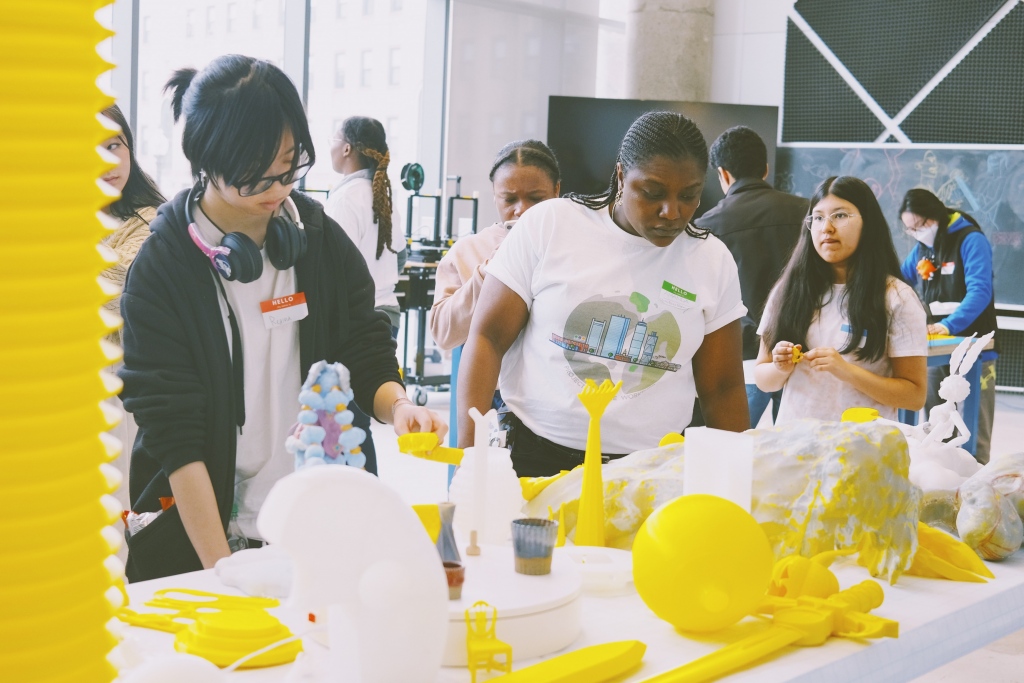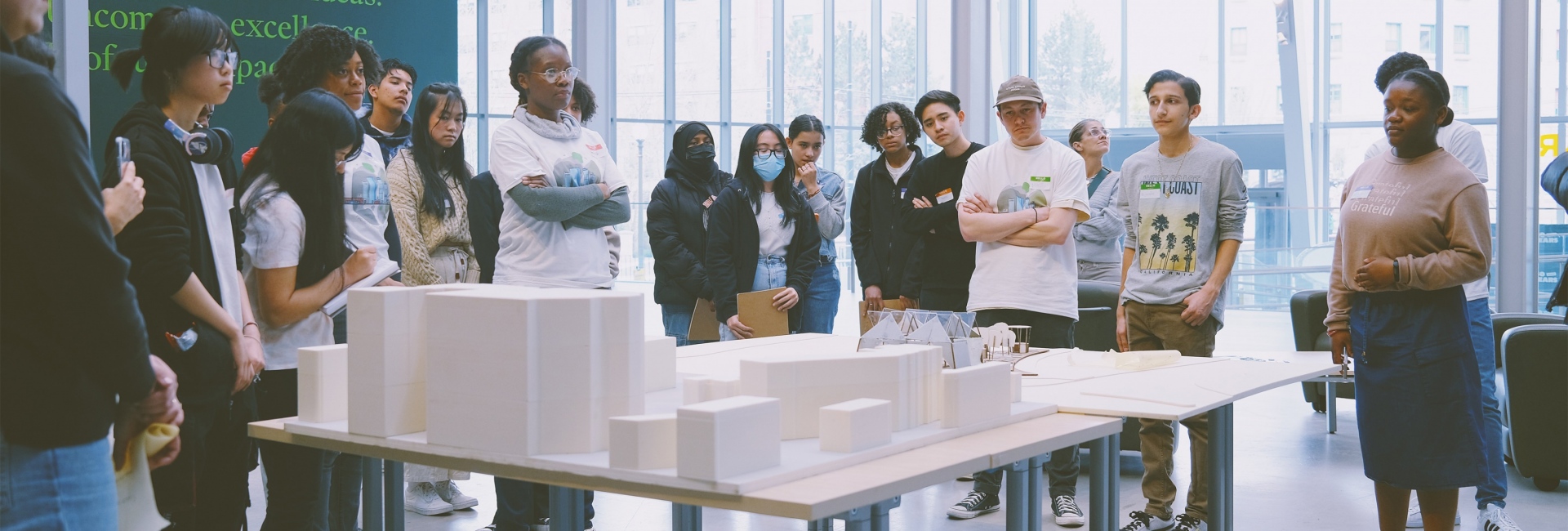This Spring, PAYETTE built upon its budding pro-bono relationship with YouthBuild Boston by supporting mentorship and fabrication efforts related to Project Pipeline! This year, Project Pipeline was a one-day event organized by both YouthBuild Boston and BosNOMA meant to introduce underrepresented youth to the design profession. YouthBuild Boston is a Roxbury-based non-profit that helps provide underserved youth with the skills necessary to enter the design and construction industry, and BosNOMA is Boston’s chapter of the National Organization of Minority Architects.
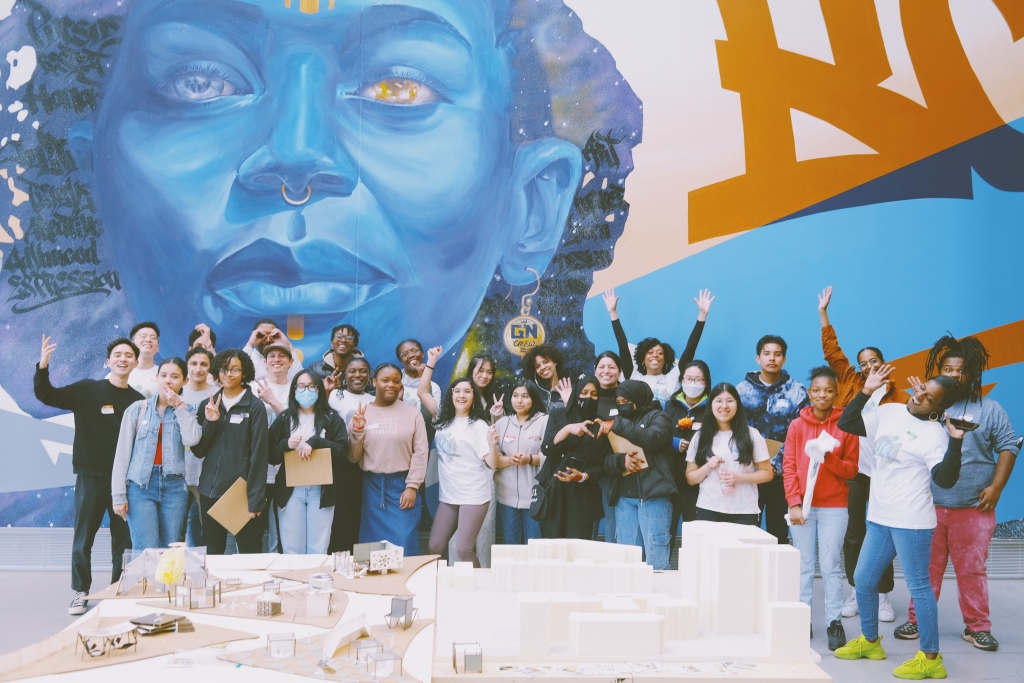
Like our recent MLK Day of Service engagement with YouthBuild Boston, PAYETTE provided a CNC-milled site model to help situate design studies created during Project Pipeline. Moreover, Calvin Boyd, an African American architect, and Associate at PAYETTE, was one of several Boston design professionals who helped support the event as an impromptu mentor and design critic. In fact, many volunteers were designers of color, a key aspect in helping BIPOC youth see themselves in our profession. As a reminder, African Americans only account for 2% of all licensed architects.
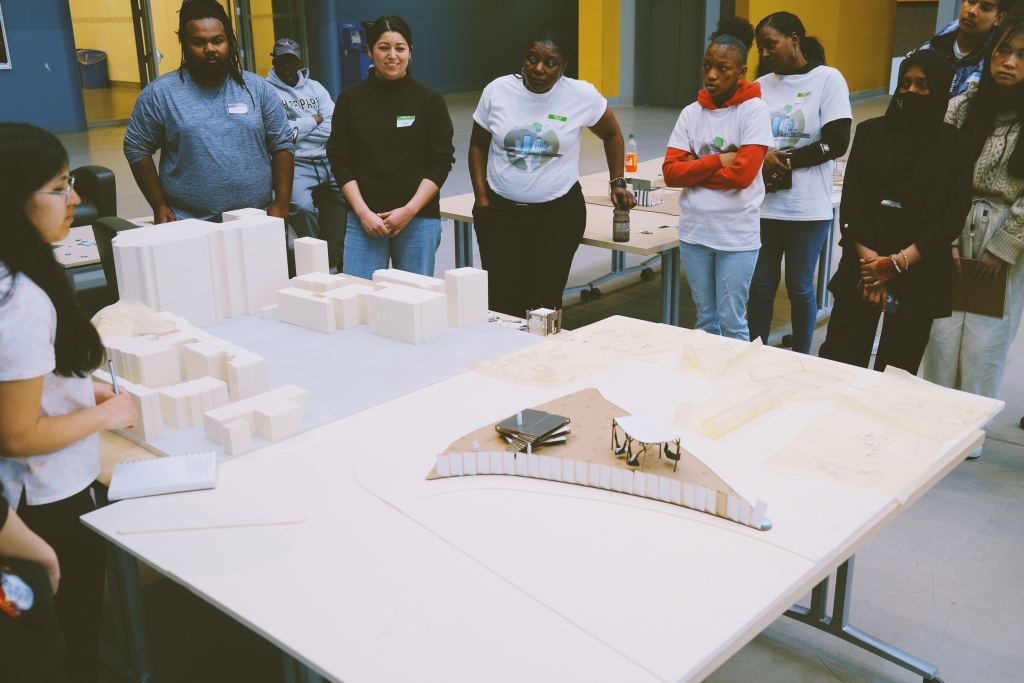
Project Pipeline took place at the Massachusetts College of Art and Design, and 20 high school students arrived eager to learn about a future in design. Students were organized into groups of four and assigned mentors to help guide them through the given design prompt. The prompt tasked students with envisioning a pavilion in Evans Way Park, a greenspace in the Fenway neighborhood, and building a ¼” model by the end of the day. Pavilions were meant to be roughly 25’x25’ and help bring awareness to issues students were passionate about. Given that Project Pipeline coincided with Earth Day, many choose to add an overlay of sustainability to their designs.
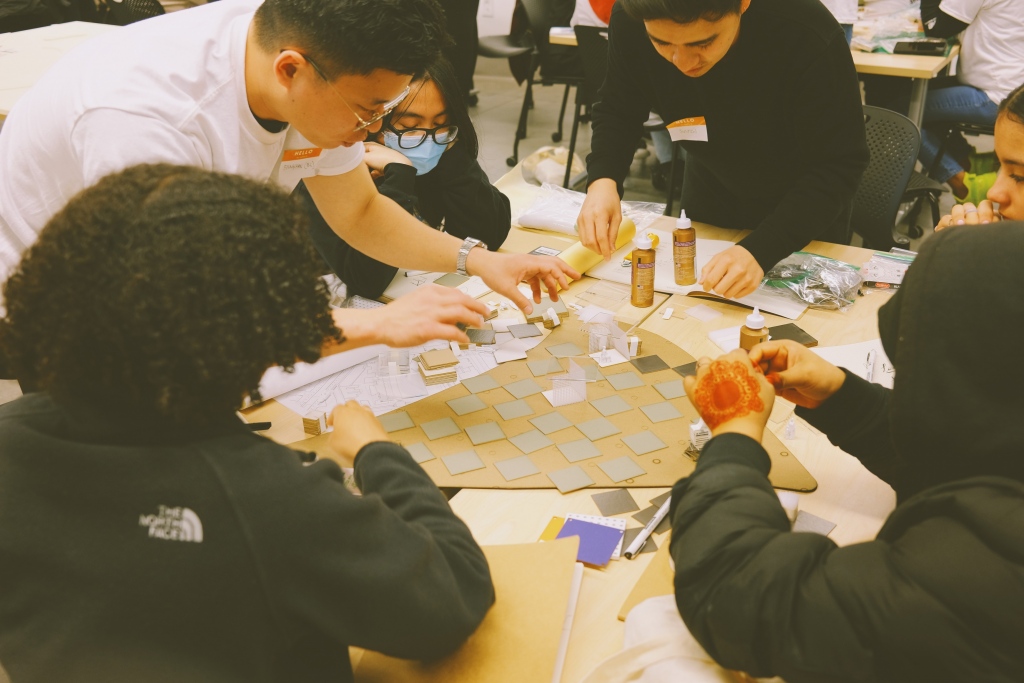
To aid in building their models, YouthBuild Boston supplied students with a kit of parts. Students were able to choose from prefabricated pieces of museum board, chipboard, perforated plastic and acrylic to create their models. Printing and laser cutting these components in advance allowed students to spend less time stressing over craft and more time iterating through their ideas. Even documentation of models was purposefully fast and efficient. Groups used polaroid cameras to snap quick photos of their work, which were later featured during the day’s concluding presentations.
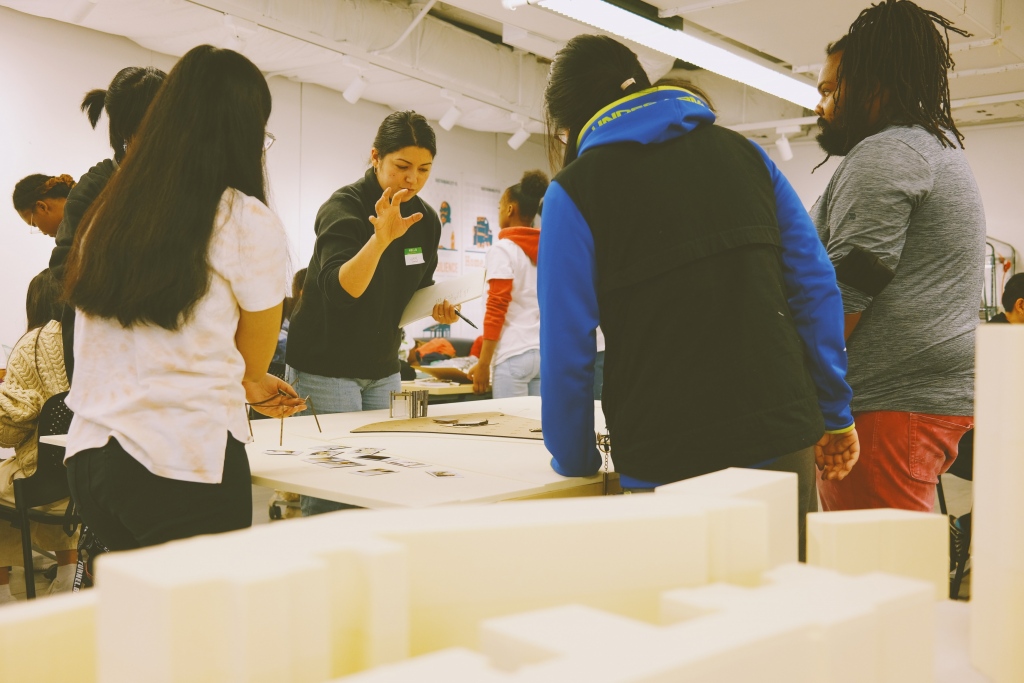
Lastly, and perhaps the most inspiring part of the day, students received a lunchtime tour of MassArt’s fabrication space from a current Master of Architecture student. MassArt’s facilities boasted several self-serve 3D printers, laser cutters, a CNC router and impressive student work related to architecture, fashion, industrial design, ceramics/sculpture and more! Project Pipeline students were exposed to a plethora of work that highlighted the range of design careers available to them. There is vast latent potential in BIPOC youth to create a more diverse and equitable profession of architecture. Initiatives like Project Pipeline help tap into this potential by showing students what’s possible.
